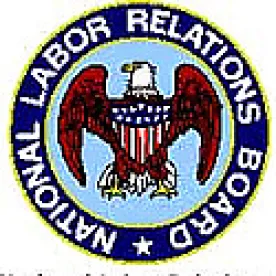On March 22, 2023, National Labor Relations Board General Counsel Jennifer Abruzzo issued GC Memo 23-05 providing guidance on the recent decision in McLaren Macomb. Below are some of the notable points set forth in the Memorandum. Here is a link to our previous report.
Retroactivity
According to Abruzzo, McLaren has retroactive application, which means that the new restrictions may invalidate confidentiality and non-disparagement provisions in severance agreements proffered to employees prior to the February 21st McLaren decision. Abruzzo further clarified that while a “proffer” of a severance agreement may be subject to the National Labor Relations Act’s six-month statute of limitations, “maintaining and/or enforcing” a previously-entered severance agreement with an unlawful non-disparagement and/or confidentiality provision “continues to be a violation” and thus would not be subject to the six-month statute of limitations.
Does an Overly Broad Confidentiality or Non-Disparagement Provision Invalidate an Entire Severance Agreement?
The Memorandum cites a general practice among the Board’s regions of voiding unlawful provisions of agreements, as opposed to voiding the entire agreement. The Memorandum notes that, “while it may not cure a technical violation of an unlawful proffer,” employers should consider remedying a prior violation by contacting former employees who received severance agreements containing overly broad confidentiality and/or non-disparagement provisions to advise them that the provisions are null and void and that the employer will not seek to enforce them. Abruzzi suggested that this remedial action could arm employers with the basis for a merit dismissal in the event of a charge based solely on the unlawful proffer of an overly broad severance agreement.
Are Any Confidentiality Provisions Lawful?
Standard severance agreement provisions requiring that a former employee maintain the confidentiality of all of the terms of a severance offer are likely to be considered overly broad. Abruzzo specifically noted that a narrowly tailored confidentiality clause with regard to only the non-disclosure of the financial terms of the severance offer would not typically interfere with the exercise of Section 7 rights. What may also be lawful are confidentiality provisions that seek to protect trade secrets and/or other proprietary information, provided they are narrowly tailored and contain a temporal limitation.
Are Any Non-Disparagement Provisions Lawful?
The Memorandum advises employers to consider temporal limitations on non-disparagement provisions and that such provisions must be “narrowly-tailored” and “justified” to prohibit only defamatory statements, those that are “maliciously untrue” or those made “with knowledge of their falsity or with reckless disregard for their truth or falsity.”
Other Key Takeaways
The Memorandum called attention to other common clauses in severance and other employment agreements, such as non-compete and non-solicit clauses, no poaching clauses, and broad release and covenant not to sue clauses that go beyond the employer or employee claims, suggesting these provisions may also interfere with employees’ rights under Section 7 of the Act.
Abruzzi cautioned that while specific savings clauses could be useful to resolve ambiguous or vague provisions in a severance agreement, such clauses would not necessarily cure overly broad provisions. The Memorandum sets forth the types of terms an employer should reference in what she described as a “prophylactic statement of rights” to potentially include in a severance agreement to mitigate the risk of including confidentiality and/or non-disparagement provisions.
Lastly, the Memorandum confirms that McLaren does not apply to supervisors who generally are not protected by the Act; however, retaliation against supervisors for refusing to proffer an overly broad severance agreement to an employee would be violative. This would also extend to managers and confidential employees who generally are not protected by the Act.
The Memorandum is further evidence of Abruzzi’s pro-employee stance. And, it leaves the door open as to whether other common provisions in severance agreements and other employment agreements, may, at least in her view, violate the Act. The Memorandum will likely be subject to legal challenges and its future remains uncertain. In the interim, employers are advised, yet again, to revisit their form(s) of severance agreements and consult with legal counsel regarding the implications of the Memorandum.







 />i
/>i

